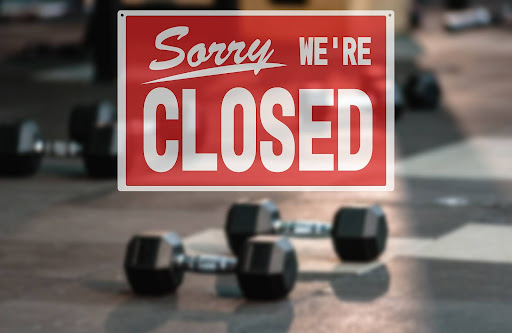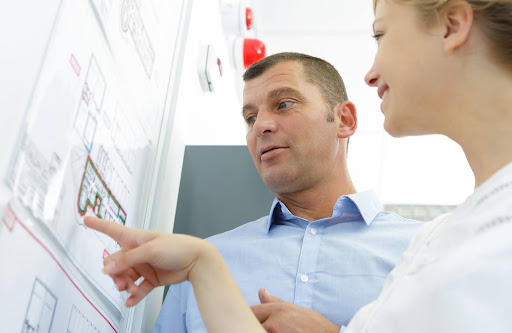Common areas in condos are tricky to maintain. There are many floors, elevators, stairs, and amenities to consider. For this reason, it can be difficult to keep track of everything and stay on top of all maintenance tasks. HOA boards should develop efficient systems to keep things in check.
What are Common Areas in a Condo?
Common areas in condominium associations are different from regular HOAs. Instead of shared sidewalks and roads, condominiums have more shared hallways, staircases, and elevators. Plus, there are additional common areas like lobbies and rooftops. Here are the common areas you normally find in condominiums.
- General Common Elements. A general common area is a space or amenity all residents can access and use. Common examples include hallways, staircases, lobbies, gardens, pools, gyms, elevators, and parking lots.
- Limited or Exclusive Common Elements. A limited common area is a space made for the exclusive use of specific units. Examples include patios, assigned parking spaces, balconies, and private rooftops.
Tips to Maintain Common Areas in Condos
How can community associations maintain common areas in condos? Here are some tips.
1. Create a Maintenance Schedule
Common areas need a lot of attention and upkeep to remain pristine. Consider establishing a maintenance schedule that the cleaning and maintenance staff can follow. For example, hallway and lobby cleaning may be done daily. Meanwhile, less frequented areas, such as staircase,s may be cleaned weekly or every few days.
Establishing regular maintenance schedules for certain facilities like pools, elevators, recreational spaces, and fitness centers is also important. The maintenance plan can keep everything in good condition and prevent major damages from occurring.
2. Establish Usage Rules

Homeowners and their guests might not always take care of common areas and facilities. Hence, it’s best to establish condominium common area rules to prevent damage and keep them in good shape.
What rules can you set in place? Here are some common examples to consider:
- Operation Hours. Homeowners may be allowed to use certain facilities only during set hours of the day to minimize disturbances and dedicate time for maintenance.
- Reservation. HOAs can outline reservation procedures to prevent overcrowding, property damage, and accidents.
- Capacity Limits. Some common areas may need more capacity to ensure comfort and safety for all occupants.
- Cleanliness and Maintenance. Encourage the unit owners to clean as they go and report maintenance issues when they arise.
- Guest Policies. Provide detailed rules for guests in common areas (e.g., number of guests allowed, restrictions and allowances for guests using certain amenities)
- Pet Guidelines. Establish a pet policy to prevent property damage (e.g,. leash requirements, designated pet spaces, and cleanup responsibilities)
- Behavioral Standards. Create rules on behavioral standards to prevent people from being rowdy. HOAs can prevent certain actions, such as smoking, vandalism, and inappropriate behavior.
- Safety and Security Guidelines. HOAs can implement safety guidelines for amenity use (e.g. using gym equipment properly, no running or pushing people in the pool).
3. Implement Good Cleaning Practices
Cleaning is a vital part of maintenance. Make sure to implement good practices to avoid any mishaps and prevent maintenance issues from escalating. Here are some examples of effective cleaning practices to adopt:
- Daily sweeping of floors
- Regular wiping of surfaces
- Daily trash disposal
- Weekly carpet cleaning
- Furniture tune-ups every few months
- Sanitation around high-contact places (e.g. door handles, elevator buttons)
- Monthly window cleaning
- Periodic HVAC maintenance
In addition, it’s important to use the right products and equipment for the job. Make sure to do your research on the kinds of cleaning solutions and tools that are best for each object or surface.
4. Hire Professional Services
Managing condo common areas is not easy. The board can only do so much on their own. Hence, it’s usually best to hire professional cleaners and maintenance staff to do the work. Professional cleaning companies are more knowledgeable and have professional-grade tools to clean the common areas.
In addition, they have more experience in cleaning and maintaining condominium facilities. They may also offer various services from which the condominium can benefit. All of these contribute to a better and cleaner environment.
5. Address Maintenance Issues Promptly

It’s crucial to address issues immediately once someone spots a maintenance problem. Doing so can prevent issues from escalating and causing further damage. Report any electrical failures, equipment breakdowns, or leaks immediately. It’s also important to tell the residents to do the same.
Furthermore, the HOA board should establish a system for urgent maintenance issues. They should have a reporting system and appoint a point person to coordinate with maintenance staff and contractors.
6. Incorporate Environmentally Friendly Cleaning Solutions
Eco-friendly cleaning chemicals are free of harmful toxins. Hence, they may be a better alternative to traditional cleaners, which can be abrasive or harmful over time. Moreover, eco-friendly cleaning solutions cause fewer health problems and are more sustainable.
7. Inspect the Areas Regularly
Regular inspections can help the board spot property damage or potential issues that might cause damage later. Schedule a professional inspection periodically so that everything remains in tip-top shape. They may be a little costly, but they go a long way in preventing major issues.
8. Develop an Emergency Response Plan

Emergencies may easily frazzle HOA board members. However, it’s essential to remain calm and follow a clear procedure when something happens. Consider preparing an emergency response plan so everyone involved can act quickly.
For example, create a list of people to contact when a fire, break-in, or natural disaster occurs. The board may also provide the condo association’s insurance provider details. Moreover, they should post reminders of what to do when there’s a blackout, flood, or extreme weather. Proper emergency response can limit the damage done to community property and get common areas back to normal much faster.
9. Use Technology
Technology can improve the efficiency and effectiveness of cleaning and maintenance tasks. HOA management software can schedule all the maintenance activities and monitor work orders so everything stays under control.
Technology can also improve communication between board members, residents, and HOA managers. In addition, associations with enough funds can consider non-human resources such as robot cleaners and other automated systems.
Stay on Top of Condo Upkeep
Condos have more common areas than regular single-family or townhome subdivisions. Hence, the board has much more to keep track of and maintain. The board and management company should develop detailed plans and systems to ensure nothing is overlooked.
Freedom Community Management provides essential condo association management services to Florida condominiums. Contact us online or call us now at 904-490-8191 for more details!


